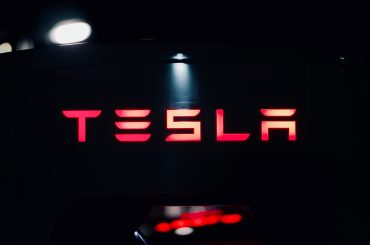Does Toyota own Mazda
Does Toyota own Mazda? Two major players in the auto industry have joined forces to improve the sector even more. On May 13, 2015, the Toyota-Mazda alliance was officially established. The partnership will enable the two companies to collaborate on a variety of automotive projects. By working together for a long time, Toyota and Mazda hope to produce even better automobiles.

The Toyota-Mazda partnership will enable the two businesses to utilize one another’s resources to enhance their own innovations and products. As a result of this partnership, drivers should anticipate Toyota and Mazda vehicles with more cutting-edge features and aesthetics.
In order to guarantee that both businesses are utilized to their full potential, a joint company with representatives from both businesses has been established. All group initiatives will be developed under the supervision of the committee. There will be numerous interactions between the committee and corporate functions. They will collaborate in areas like the cutting-edge safety and environmental technology of each brand.
Toyota is a huge, successful business. Despite the fact that it does not require anything from Mazda, it is still directly competing in a number of vehicle categories by purchasing a 5 percent stake in the company. If Akio Toyoda is a straight shooter, fans may have reason to be optimistic. The following was his assessment of the transaction: Through this partnership, car enthusiasts will collaborate to develop ever-better vehicles. Additionally, it demonstrates our resolve to prevent automobiles from becoming commodities.
From the contemporary icon that is the Mazda Miata to the three-row CX-9 family hauler, the Mazda lineup lives up to the slogan “Driving Matters.” On the other hand, Toyota has come under fire for years for already producing the most commoditized automobile on the market.

Since there have been indications that the most recent Toyota models are being tuned with a new kind of passion, this latest move by the company may be a way for enthusiasts to gain more credibility. It is essential to understand that Lexus models that compete with BMW won’t just appear by themselves.
Recently, Toyota has been investing in its smaller rivals. Subaru, Mazda, and Suzuki are all targets. It seems like a way to get into other centers of excellence from the outside looking in: Mazda and Subaru share the FT-86 platform sports car, so Subaru is familiar with all-wheel drive and affordable safety. Toyota has access to resources whenever it needs them because of these partnerships.
To protect itself, Toyota is also working to build up the company slowly. Toyota can share a portion of its automobile business and maximize investment returns at the same time. Instead, a rival of similar size would join these smaller rivals, which would be disastrous and significantly more costly. Or, even worse, one of the numerous tech companies that is rumored to be entering the auto industry and relies on private capital.
Even Tesla, the most successful start-up, has had trouble making cars. Even the smallest of the remaining automakers have identified these challenges: collaborating on platforms, the supply chain, stamping and assembly, and more. If you do not pursue acquisitions, you will have a better chance of avoiding a real competitor from the expanding global tech industry.
Toyota is acting similarly to food giants in grocery stores in the automobile industry. Instead of passing on a 1,000-slice loss to smaller, more skilled competitors that are gaining more and more attention from consumers, you are witnessing laid-back food manufacturers snatching up the newcomers.
The best outcomes will be beneficial to the conglomerate’s bottom line, the niche brand, and consumer choice, despite the fact that it may be a move to prevent rivals from competing. In this most recent announcement, it’s possible that Toyota is merely providing us with a car-shaped cake and a fork so that we can also eat it.
The partnership announcement says that Toyota and Mazda will work together on electric vehicles, advanced safety features, and in-car electronics. Despite the fact that some work is being done with battery-electric or hybrid systems, Mazda does not appear to be eager to overextend itself in the development of internal combustion powertrains at this time.
Actually, Mazda Senior Vice President for Special Assignments Robert Davis has reduced the doomsday clock predictions for conventional engines. Davis said what you might expect from a company that doesn’t have a hybrid or full-electric powertrain when he spoke last week at the Center for Automotive Research Management Briefing Seminars: The internal combustion engine’s imminent demise is exaggerated.
Autoline After Hours provided Davis with additional insight into the Mazda position. He refuted the notion that Mazda does not offer electric or hybrid powertrains and mentioned the Toyota partnership in the event that Mazda required those components. And that was before the partnership announced its expansion.
Additionally, despite Mazda’s whole-car approach to incorporating efficiency into vehicles, significant energy savings remain to be realized. After all, Davis asserted, zero-emission vehicles are more accurately referred to as remote emissions, and the scene appears to be significantly less environmentally friendly when you zoom out to view the entire scene.
Toyota will soon make available official information regarding which model will actually be produced at the new joint-venture plant. Tacoma has been moved to Mexico, and the company now says that a new plant in the United States will make 300,000 Corollas a year. A shift to something more in line with the crossovers that Mazda intends to manufacture there may soon be required due to declining sedan sales and the explosive popularity of crossover vehicles, in addition to their higher profitability.
Toyota is now able to develop new models in a different way because it has access to a flexible partner. Better for shareholders and financial professionals, it can divide some costs between Mazda’s and its own balance sheets.







